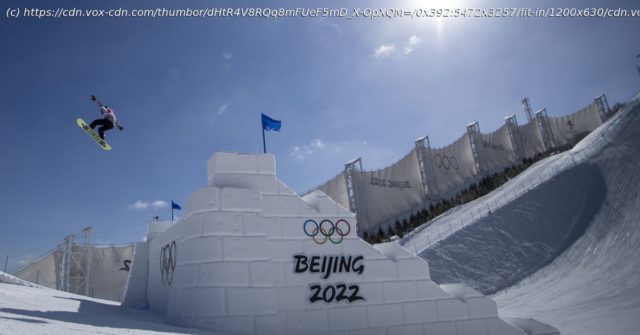The 2022 Winter Games are the first to rely entirely on artificial snow. They probably won’t be the last.
For decades, Jeremy Jones has explored unique and pristine winter slopes around the world on his snowboard. He’s found new routes accessible only via helicopter and snowmobile, making a name for himself as a big mountain snowboarder, filmmaker, and entrepreneur. In the process, he developed a sense for subtle variations in wind, snow, ice, and water. “The type of snowboarding I do requires me to have an incredibly intimate relationship with winter,” said Jones, who is 47. “I snowboard in the backcountry where the difference between a slope being stable and avalanching has lots of nuanced signs.” But the ground beneath his feet started to shift, and so did his thinking. Resorts that used to have reliable snow started closing more frequently. Some mountains started getting more rain than snow as glaciers retreated up their slopes. For Jones and many fellow winter enthusiasts, climate change became impossible to ignore. “I was like, man, this problem is not going away without us doing something about it,” Jones said. It’s not just snowboarding — climate change is already having an impact on several winter activities, including many of the outdoor sports on display at the 2022 Beijing Olympics. On average, winters are warming faster than summers and northern latitudes are warming faster than regions closer to the equator. Sports that count on outdoor snow and ice are especially vulnerable. In a warming world, precious few cities may be reliably cold with enough snow and ice to host Winter Olympics of the future. In 2007, Jones founded the advocacy group Protect Our Winters with the aim of uniting winter sports enthusiasts in the fight against climate change. With the world’s eyes on the Winter Games, athletes-turned-advocates are hoping to channel some of that attention toward the ways climate change threatens their sports. And the group’s latest report, “ Slippery Slopes: How Climate Change is threatening the 2022 Winter Olympics,” warns that without drastic action, many of the sports that thrill fans and athletes are endangered. Warmer winters aren’t just leading to mushier snow, the authors write. The places where winter sports can be played at all are becoming fewer and farther between. That makes it harder for athletes to train and makes winter sports more expensive and exclusive, throttling the pipeline for new skiers, snowboarders, and skaters. It’s an early warning sign for the future of winter itself. The Winter Olympics may never be the same This is the first year in history that the Winter Games will have to manufacture all of its own snow. Organizers expected as much, given that Beijing has never been known for especially snowy winters. But winter sports have been increasingly reliant on artificial conditions for years. “Things have been trending in this direction for quite some time,” said Timothy Kellison, director of the Center for Sport and Urban policy at Georgia State University.






